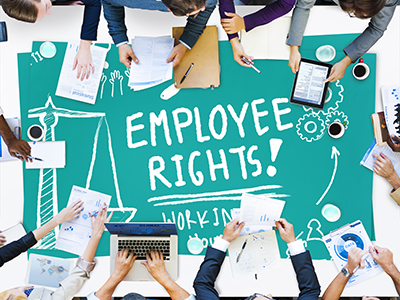
The U.S. Department of Labor announced a new nationwide pilot program aimed at allowing employers to self-report and self-remedy potential minimum wage and overtime violations. According to the DOL’s Wage and Hour Division (WHD), the Payroll Audit Independent Determination (PAID) Pilot program will allow employers to resolve Fair Labor Standards Act violations without full investigations and litigation. We summarize the features of the program.
How will it work? Any FLSA covered employer will be asked to review the compliance assistance materials on the DOL website to assist in understanding their minimum wage and overtime obligations. Then the employee may conduct a self-audit of its compensation practices for potential violations. If the employer determines that violations exists, the DOL requires that the employer (1) identify the potential violations; (2) identify the affected employees; (3) identify the timeframes in which the employees were affected; and (4) calculate the amount of back wages the employers believes are owed to employees.
Employers must then contact the WHD and request that the employer be allowed to participate in the program. If WHD accepts the request, the employer must provide WHD a calculation of the damages, an explanation of the damages, certify that it has reviewed the compliance assistance materials, disclaim participation in current or threatened litigation and certify that the employer will adjust its practices.
What will employers potentially get out of the program? Upon receipt of the information, WHD will review the information, “assess the back wages due,” and consider a release of claims limited to the violations that are part of the self-audit.
How will remediation occur? DOL will require that the employer distribute the wages. The payments will be required to be made “by the end of the next full pay period” after WHD approves the audit and provides a summary of back wages due.
Are employers off the hook after participating in the program? Employees remain able to file claims if they choose to not accept the payments. In addition, if the employee accepts the payment, the employee still has not agreed to a broad release of all potential FLSA claims. Also, the WHD reserved its right to conduct future investigations.
How does the program benefit employers? WHD states that the program allows employers to improve their compliance with FLSA obligations without litigation. However, as recently reported by Politico, David Weil, the Obama WHD chief, said he did not see the program “moving the needle at all” regarding enforcement of the FLSA.
When can employers sign up and how long will the program last? WHD has not announced when the program will start but states that the pilot will last six months.
Should employers rush to participate? Much remains unclear about the PAID program. WHD has not signaled whether participation in the program would completely absolve employers of liquidated damages or civil monetary penalty assessments. In addition, the program requires that employers undertake self-audits but does not guarantee that the WHD would actually accept the calculations and allow remediation. If WHD and an employer disagree, it is likely that WHD would begin a broad investigation of the employer’s workplace. Further, even if there is agreement, the time for remediation will come quickly for employers. While WHD has no deadline to respond to the employer’s self-audit and back wage calculations, employers would be obligated to shift into panic mode to pay back wages by the end of the next full pay period once WHD approves the self-audit results. Further, the PAID program would do nothing to protect a participating employer from any state law wage claims. Finally, employers may want to take a wait and see attitude as the WHD Administrator’s position remains open. Congress’s last action to move Cheryl Marie Stanton’s nomination occurred nearly two months ago and confirmation hearings have not been scheduled. It is conceivable that she may revise the program or take a different tack once in place.
Employers should be very cautious about participating in the program and should confer with counsel before deciding to participate.

